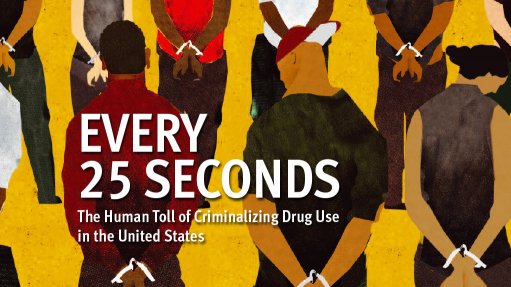
Every 25 seconds in the United States, someone is arrested for the simple act of possessing drugs for their personal use, just as Neal and Nicole were. Around the country, police make more arrests for drug possession than for any other crime. More than one of every nine arrests by state law enforcement is for drug possession, amounting to more than 1.25 million arrests each year. And despite officials’ claims that drug laws are meant to curb drug sales, four times as many people are arrested for possessing drugs as are arrested for selling them.
As a result of these arrests, on any given day at least 137,000 men and women are behind bars in the United States for drug possession, some 48,000 of them in state prisons and 89,000 in jails, most of the latter in pretrial detention. Each day, tens of thousands more are convicted, cycle through jails and prisons, and spend extended periods on probation and parole, often burdened with crippling debt from court-imposed fines and fees. Their criminal records lock them out of jobs, housing, education, welfare assistance, voting, and much more, and subject them to discrimination and stigma. The cost to them and to their families and communities, as well as to the taxpayer, is devastating. Those impacted are disproportionately communities of color and the poor.
This report lays bare the human costs of criminalizing personal drug use and possession in the US, focusing on four states: Texas, Louisiana, Florida, and New York. Drawing from over 365 interviews with people arrested and prosecuted for their drug use, attorneys, officials, activists, and family members, and extensive new analysis of national and state data, the report shows how criminalizing drug possession has caused dramatic and unnecessary harms in these states and around the country, both for individuals and for communities that are subject to discriminatory enforcement.
Report by the Human Rights Watch